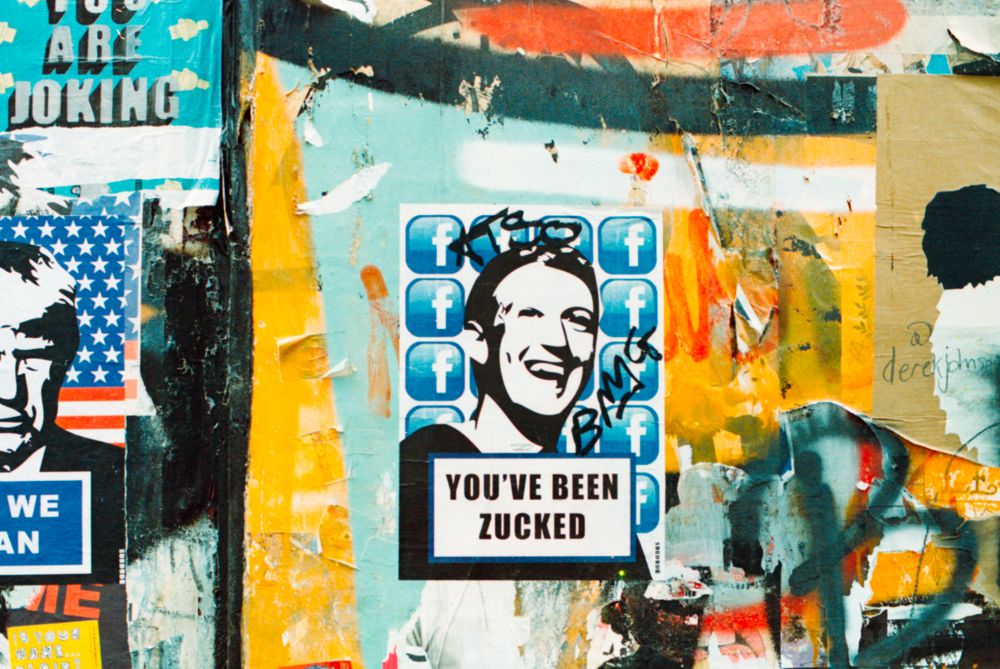Nothing can be ruled out in the world of social media controlled by tech giants.
Therefore, since Facebook received the order from the Irish Data Protection Commission in which it indicated that it could no longer send the data of its European users to its servers in the United States, the future of the company's operations in Europe went dark.
The Irish Data Protection Commission has given Facebook until mid-September to respond to the order, according to WSJ.
The Irish order obliges Facebook - and it could serve as a precedent against other large technology companies - to manage the data of European users on servers that are not in the United States and therefore migrate them to another territory.
The possibility of such a difficult and expensive operation has not pleased the company at all.
And it has led those responsible in Ireland to assure, in a sworn statement before the courts, that this scenario would endanger their operations on the continent.
The giant was bluffing and will not go away.
A day after the uproar was organized, its Vice President of Communication and International Relations, Nick Clegg, assured in a debate on European Union policies that the company had no intention of leaving.
"Of course we will not [close in Europe], and the reason we will not do so is precisely because we want to continue serving our clients and small and medium-sized companies," he said.
The more than 400 million users it has and the financial gains it has made in Europe are motivation enough to stay.
But the latest events and statements suggest that this hypothesis is no longer far-fetched.
What would happen if Facebook left the old continent?
Enrique Dans, professor of Innovation at IE Business School, had already fantasized about such a future.
And, according to Dans, the withdrawal from the continent of Facebook, Inc - which also owns Instagram, Messenger and WhatsApp - would not be a negative thing.
“Many of us would react thinking about how positive it would be for Europe if what has been described on multiple occasions as the most harmful company in recent times was forced no longer to leave the European market, which is clearly not going to happen, but rather to put certain limits on an activity that many users find unbearable, disrespectful and violates their privacy, "says Dans, citing as an example the Chinese case, a country with 1,393 million inhabitants in which Facebook is irrelevant.
“Without Facebook, we would simply look for another alternative.
Chinese users use other platforms to interact, share content, or access information about the activities of their friends, acquaintances or public figures whom they want to follow.
In fact, the exclusion of Facebook from the scene in China has encouraged the emergence of local competitors adapted to the market ”, clarifies Dans.
In the country, the most used social network is WeChat, which not only acts like Facebook but also WhatsApp and several other apps, according to the latest report from the companies Hootsuite and We Are Social.
Social media expert Ana Aldea, founder of datasocial and member of EO Madrid, agrees with Dans that Facebook's departure from Europe is an unlikely scenario.
But they differ in that it would not sound like good news to her.
"We have become accustomed to Facebook being the usual way to contact people, but beyond the use that individuals make of the social network, the strongest impact would be economic," says Aldea.
The expert cites the study carried out by the consulting firm Deloitte on the economic repercussions of Facebook, Inc. in Europe.
"The figures speak for themselves: they have created more than 783,000 jobs and contribute 51,000 million euros to the Community GDP," he adds.
The report
How the Tech Giants Make Their Billions
(
How technology giants create their thousands of millions
) published last year by the team of Virtual Capitalist breaks down the sources of income of the largest technology companies, such as Alphabet, Amazon, Apple, Microsoft and, of course, Facebook.
The study revealed that of Facebook's total revenue - which amounted to $ 55.8 billion annually (€ 48.04 billion) - 43% came from the United States and 24% from Europe.
The remaining percentage was shared between Asia and the rest of the world.
The old continent represented the second source of income for the company, according to the report.
In July this year, Facebook announced that despite the pandemic and
boycotts
, during the first half of the year the company had earned 10,081 million dollars (8,068 million euros), almost double than in the same period of the previous year.
The strength of the company in Europe can be seen with a map.
Only in six countries on the continent - Belarus, Ukraine, Serbia, Montenegro, Bosnia and Herzegovinia and Croatia - social networks that belong to the company do not top the lists of the most used.
In these countries it is Viber, the instant messaging application of the Japanese company Rakuten, which leads the list.
But in the rest, 44 countries, Facebook has been crowned, either with WhatsApp, Facebook Messenger or Instagram, always in the first three positions of the most popular.
Facebook and the tech giants — Microsoft, Apple, Amazon, and Google — have been haunted by an adjective they don't like to hear: oligopoly.
“That technology is an oligopoly is a fact that has little going backwards.
Some voices have proposed
cutting them apart
to revoke their oligopolies ”, says Aldea, referring to the proposal of Senator Elizabeth Warren, who during the elections to elect a Democratic candidate launched a strong campaign against the domination of the big Internet companies.
For the expert, that could be one of the ways to avoid European and global dependence on a few companies, as is the case of Facebook with the old continent.
“For example, although it sounds crazy, the United States did the same years ago with the electricity grids, the oil companies or the telephone companies with the aim of preserving competition.
In Europe so far the option is to punish companies for abusing their dominant position and this is what it has done by fining Google 1,494 million euros, which is not that much;
it is only equivalent to 1.29% of its turnover in 2018 ”, he explains.
Professor Dans agrees with the expert.
"In the coming years, we will see much more pressure for antitrust regulations and controls to work much more aggressively, in the United States and in Europe, which was pioneering in that regard," he predicts.
And it has been that initiative of Europe in the protection of data that now has Facebook on the ropes.
According to the Irish Data Protection Authority, the United States does not meet the minimum requirements for respecting data protection and does not want to expose that of its European citizens.
For Natalia Martos, CEO and founder of Legal Army, the Irish order "represents a very strong precedent" since it is the first consequence after the European justice decided to annul the
Privacy Shield
that regulated the transfer of data to the United States.
in July.
"This decision could be extended to the rest of the companies that transfer data between the European Union and the United States, so if it reaches its final consequences, it could be a very severe blow to the digital economy of US companies, since European companies they would look for suppliers located in the region to continue maintaining their digital activity, ”explains Martos.
Furthermore, the Court has every indication to suspect that Facebook - a company that has had several scandals over the controversial handling and protection of its users' data - will not do it either, or at least not under the strict parameters that Europe requires.
"For its investors it is a sure success and for shareholders even more so, if we take into account that Facebook started trading at $ 92 (79.21 euros) and now goes for $ 248 (213.53 euros).
In economic terms, it has a relevant weight for the economies in which it operates ”, says Aldea, who does not turn a deaf ear to the problems that the social network has dragged down.
"Even Facebook agrees that its use is dangerous for people's mental health and has had dire consequences on society," concludes the expert.
You can follow EL PAÍS TECNOLOGÍA RETINA on Facebook, Twitter, Instagram or subscribe here to our Newsletter.



/cloudfront-eu-central-1.images.arcpublishing.com/prisa/FW62NO5HOZAEBEGX7DI4OMOV4Y.jpg)



/cloudfront-eu-central-1.images.arcpublishing.com/prisa/5NROI36XDBSLJZUMROEPIJH6IE.jpg)

/cloudfront-eu-central-1.images.arcpublishing.com/prisa/JNKEYSPVIXFSA66UHYKQUNTSQA.jpg)





